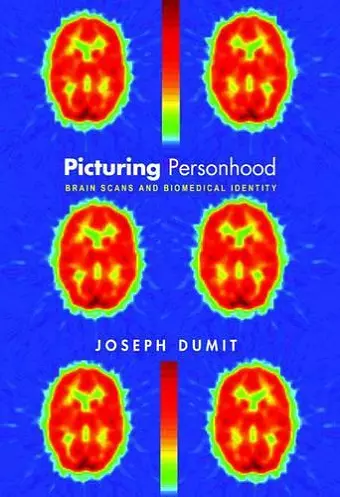Picturing Personhood
Brain Scans and Biomedical Identity
Format:Paperback
Publisher:Princeton University Press
Published:27th Jan '04
Currently unavailable, and unfortunately no date known when it will be back

Dumit's highly original oral history of how PET was developed and his cultural readings of how it is now being used are chock full of fascinating materials and insights. Among its many strengths, this intriguing book is itself highly interdisciplinary. It enables readers to see how powerful new scientific images constantly collapse into and condense old philosophical dilemmas. -- Rayna Rapp, New York University Ethnographic work on new medical technologies is rare and has an important contribution to make to debates about changing ideas of the body and about the role of medical knowledge in society. Picturing Personhood provides a timely, clear, and useful introduction to the problems and dilemmas of the production and use of PET scanning. It is undoubtedly a key contribution to our understanding of the social impacts of a technology that will become increasingly significant in many settings in the next decade. -- Nikolas Rose, London School of Economics
Based on interviews, media analysis, and participant observation at research labs and conferences, this book analyzes how assumptions designed into and read out of the experimental process reinforce specific notions about human nature. It demonstrates how brain scans contribute to our social dependence on scientific authority.By showing us the human brain at work, PET (positron emission tomography) scans are subtly--and sometimes not so subtly--transforming how we think about our minds. Picturing Personhood follows this remarkable and expensive technology from the laboratory into the world and back. It examines how PET scans are created and how they are being called on to answer myriad questions with far-reaching implications: Is depression an observable brain disease? Are criminals insane? Do men and women think differently? Is rationality a function of the brain? Based on interviews, media analysis, and participant observation at research labs and conferences, Joseph Dumit analyzes how assumptions designed into and read out of the experimental process reinforce specific notions about human nature. Such assumptions can enter the process at any turn, from selecting subjects and mathematical models to deciding which images to publish and how to color them. Once they leave the laboratory, PET scans shape social debates, influence courtroom outcomes, and have positive and negative consequences for people suffering mental illness. Dumit follows this complex story, demonstrating how brain scans, as scientific objects, contribute to our increasing social dependence on scientific authority. The first book to examine the cultural ramifications of brain-imaging technology, Picturing Personhood is an unprecedented study that will influence both cultural studies and the growing field of science and technology studies.
Winner of the 2005 Diana Forsythe Prize, American Anthropological Association "Picturing Personhood is one of the few visual-culture studies freed from lame textbook generalizations and predictable criticism... Given that brain imaging is on its way to becoming a decisive factor in the technologies of social control and selection, it is a question of political awareness to study the latest step in the conversion of human beings into visual information."--Tom Holert, Bookforum
- Winner of American Anthropological Association/Society for Psychological Anthropology Stirling Prize 2005
ISBN: 9780691113982
Dimensions: unknown
Weight: 397g
272 pages